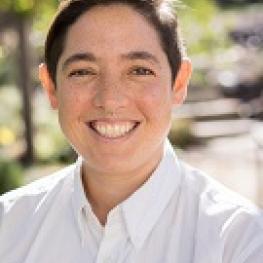"My Fingers Stand Like Ten Numbered Sins": The Challenges of Women's Yiddish Poetry
Main Line Reform Temple
410 Montgomery Avenue
Wynnewood, PA 19096
By turns emotional, spiritual, and erotic, the poems of Yiddish speaking women put Bubbie in a whole new light. Writing poetry allowed Jewish women of the early twentieth century to break free from oppressive realities, challenging the boundaries of their Jewish worlds, and engaging many different aspects of Jewish tradition. In turn, as Zohar Weiman-Kelman shows, these women’s poems connect us across history to them in a uniquely personal and powerful way, challenging our assumptions about the Jewish past.
Click here to download a printable flyer [pdf].
Part of our year-long series of public programs, Jews Beyond Reason: Celebrating Emotion, the Unconscious, and Other Dimensions of Jews' Inner Lives. In partnership with local host institutions, our aim is to connect fellows and colleagues with non-academic audiences in a spirit of shared exploration and mutual engagement.

Featuring
Zohar Weiman-Kelman
Katz Center
Zohar Weiman-Kelman received her Ph.D. from the Department of Comparative Literature at the University of California, Berkeley in 2012. Weiman-Kelman’s research explores intersections of Jewish history and queer theories of kinship and temporality. She recently completed her first book manuscript, What to Expect When You’re Not Expecting: Queer Histories of Jewish Women Writers. Reading poetry in Yiddish, Hebrew, and English from 1880 to 1990, the book examines how literary lineage is constructed and challenged by Jewish women. Between Jewish women’s limited access to the past and the precarious future of Yiddish, it offers a queer genealogy based in nonlinear transmissions, affective connections and cross-temporal encounters. Before coming to the Katz Center, she held the Anne Tanenbaum Postdoctoral Fellowship at the Centre for Jewish Studies at the University of Toronto and was a postdoctoral teaching fellow at the University of Haifa. Dr. Weiman-Kelman’s new project, Philology, Sexology, and the Future of Yiddish, looks at intersections of Yiddish language and sexuality.
